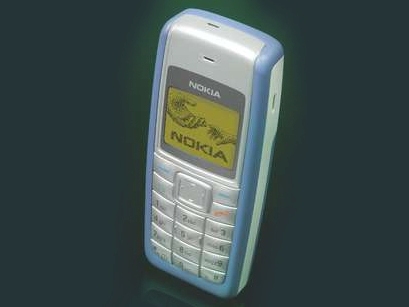Nokia owns 40% of global mobile phone market
Developing markets prove key to phone giant's success

Sign up for breaking news, reviews, opinion, top tech deals, and more.
You are now subscribed
Your newsletter sign-up was successful
Four out of every ten mobile phones sold around the world last year were made by Nokia. Yesterday, the world's largest mobile phone maker announced a 46 per cent rise in operating profits to £11.6 billion. The company also announced that it sold a total of 133.5 million phones during the final quarter of 2007.
The company's 40 per cent share of the market is bigger than that of its three leading rivals - Motorola, Sony and Samsung - put together. Between them, the chasing pack account for 35.6 per cent of the market, according to the FT.
While Nokia's fortunes are rising, its competitors are facing tough times. On Wednesday Motorola announced that shipments had fallen by 38 per cent during the final quarter of 2007, pushing its market share down to 12 per cent. Sony, meanwhile, has seen its market share rise to 9 per cent - which is still a long way off Nokia.
Emerging markets the key
So what is Nokia doing that its competitors are not? The key to Nokia's success appears to be its successful penetration of emerging markets like India, China, the Middle East and Africa.
Whereas sales of Nokia phones actually fell in the US during the fourth quarter, the US only represents a paltry 5 per cent of Nokia's market. During the same period, however, Nokia reported a 52 per cent increase in sales to the Middle East and African markets. And this is where Nokia is making its money.
While its competitors continue to focus on saturated markets, Nokia has been busy targeting developing markets with cheaper phones. Even though the yield per phone in these markets is less, Nokia still makes money on each one sold - and Nokia has been selling a lot of phones to these markets.
Sign up for breaking news, reviews, opinion, top tech deals, and more.
In other words, rather than focusing on achieving large returns from fewer sales, Nokia's strategy has been to make small returns from as many sales as it can. And it's clearly paid off.
Nokia's concentration on the mass production of cheaper handsets has benefited the company in another way too, namely a reduction in the base cost of components. A series of cost-cutting measures, such as the scaling down of packaging and even the closure of a factory in Germany, have helped Nokia to drive down its operating costs even further.
The TechRadar hive mind. The Megazord. The Voltron. When our powers combine, we become 'TECHRADAR STAFF'. You'll usually see this author name when the entire team has collaborated on a project or an article, whether that's a run-down ranking of our favorite Marvel films, or a round-up of all the coolest things we've collectively seen at annual tech shows like CES and MWC. We are one.